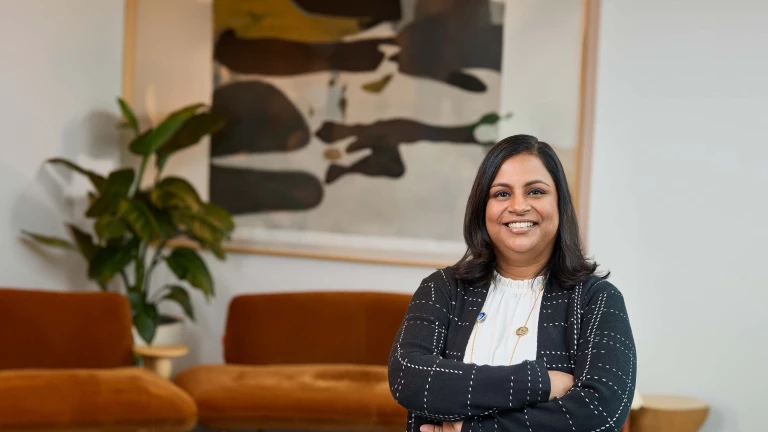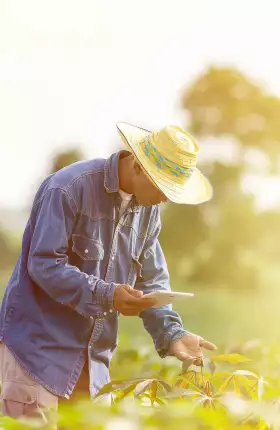When she was growing up in India, the topic of positive societal change was often central to Shalini Unnikrishnan’s family dinner conversations. Today, as a managing director and senior partner at BCG, Shalini sits on the global leadership teams of our Social Impact and Consumer practices, working at the intersection of the private, public, and social sectors. She has built a career tackling some of the world’s most complex problems, always asking how she can contribute more meaningfully to creating a better world.
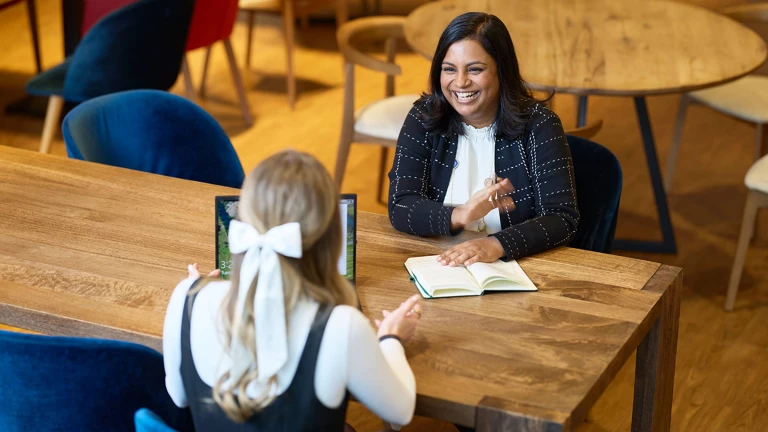
When I reflect on my career and the work I do, I’m reminded of a recent moment with my four-year-old daughter Veera. I took her to the Cambridge Science Festival at MIT, where she saw a climate change exhibit featuring a house that flooded unless protected by plants.
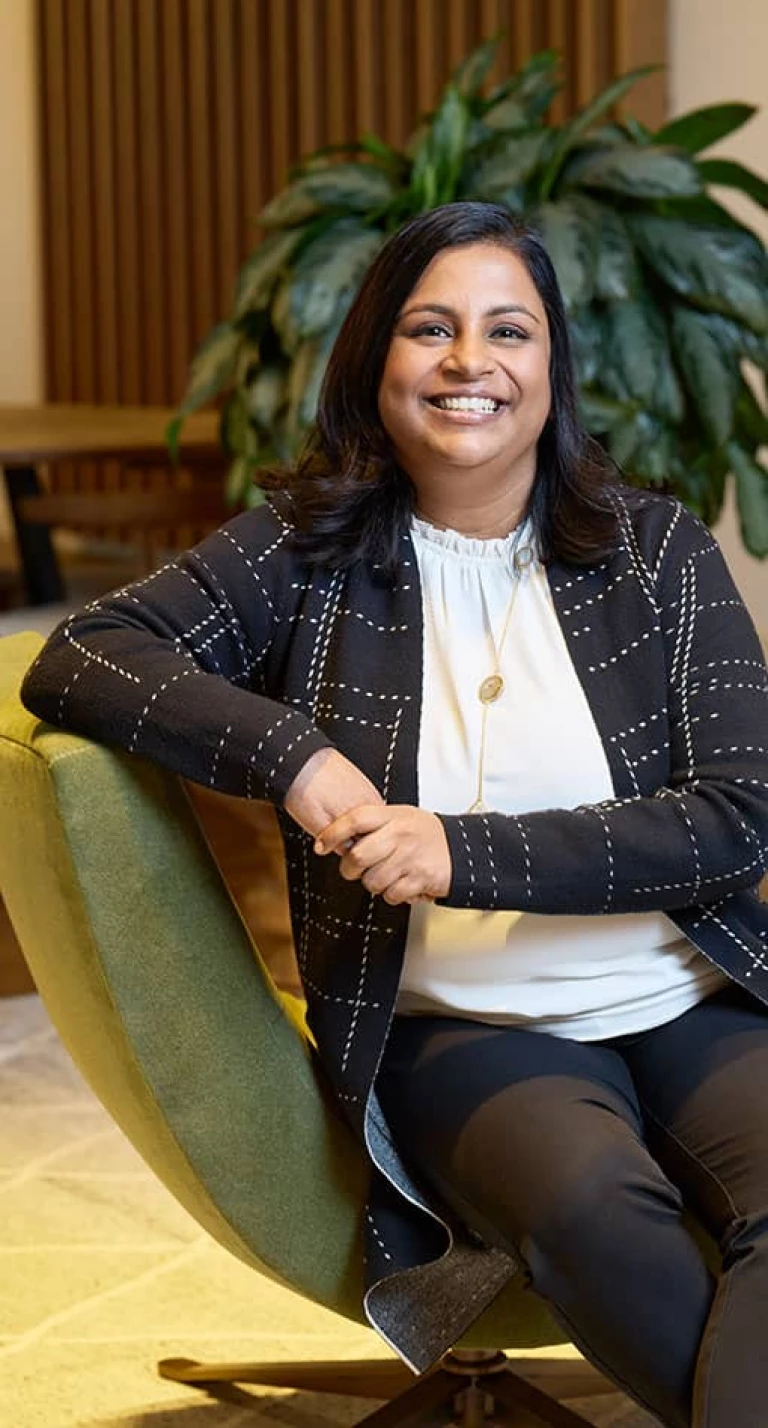
Later, she excitedly told her grandmother, “This is what Amma and her friends do! They put plants in the ocean so waves don’t hurt the people or animals. They’re like superheroes saving all the animals, like the turtles. If they don’t, the animals go xkinkt. And if they do, the dinosaurs can come back.”
I still have a long way to go to explain my work—not to mention the science of extinction—to my daughter. But it was a welcome reminder that my colleagues and I are working toward making an impact, bit by bit.
Maintaining that sense of purpose in my work is a mindset I first learned by observing my grandmother, one of the first women PhDs in her state in India. She was the principal of a public school in an underprivileged community, and she never set small goals for herself or her students, staying optimistic despite the big gaps she wanted to bridge.
In my own career full of twists and discoveries—I try to ask myself these three questions:
- Where is impact most needed?
- What would be unique about my contribution?
- Which impact efforts would most energize me and bring me joy?
Finding My Path Across Continents and Sectors
I came to the US for college, eager to explore the overlap of development and finance. After a few different roles, I realized I was craving an environment where I could address complex problems from different angles, and that’s what BCG has always offered me. I started my consulting career in health care and public sector projects and moved through global health, economic development, and social impact work, gaining new perspectives on what meaningful change could look like.
I took two leaves of absence from BCG to work in Africa. The first time, I joined Tony Blair’s Governance Initiative, embedding with local leaders in Rwanda to build government capacity. A few years later, I returned to work alongside Joyce Banda, Malawi’s first woman president, serving as her advisor. Both roles deepened my understanding of what it takes to build sustainable change in complex settings.
One of my most pivotal experiences came during the West African Ebola crisis, when BCG asked me to lead our response efforts on the ground. I spent time in Accra, Liberia, and Sierra Leone, working alongside UN teams to lay out a response plan for the first 90 days of this unprecedented health crisis. Seeing how different stakeholders tackled this emergency taught me the importance of collaboration among the private, public, and social sectors, which has been the cornerstone of my work ever since.
Building BCG’s Societal Impact Platform
When I returned to BCG, I channeled what I had learned into a new initiative focused on what we called total societal impact. The goal was to help companies understand the value of integrating social impact goals into their broader business agenda—a monumental shift in perspective that was exciting to be a part of.
Meanwhile, my attention was increasingly drawn toward the topic of sustainable food and agriculture. Our food systems are responsible for one-quarter to one-third of global greenhouse gas emissions, yet food was barely discussed in climate circles until recently. Driving change in the food and agriculture space has the potential to create layers upon layers of positive impact, from climate resilience to food security and human health. It’s a complex space, but one where I feel we have a real opportunity to effect transformative change.

In fact, it’s that complexity that makes the work so stimulating. I love diving into problems that aren’t straightforward and where solutions depend on the progress of whole ecosystems with diverse actors working together across value chains.
Plus, there’s something undeniably fun about working on issues related to food. I get to collaborate with everyone from subsistence farmers to advanced researchers developing alternative proteins.
Lessons in Optimism and Inclusion
One lesson that has stayed with me—useful both inside and outside work—is the importance of optimism. Like many of us, I’ve had moments of doubt, where the obstacles felt overwhelming or the pace of change too slow.
At one point early in my career, I even thought about leaving BCG because I wasn’t sure how a consulting firm could support the kind of impact work I hoped to do. A senior partner encouraged me to challenge that assumption—to test what might be possible rather than walking away. His advice proved invaluable. I found that BCG and I could carry one another, pushing boundaries and growing in ways I hadn’t anticipated. That optimism has sustained me through ups and downs.
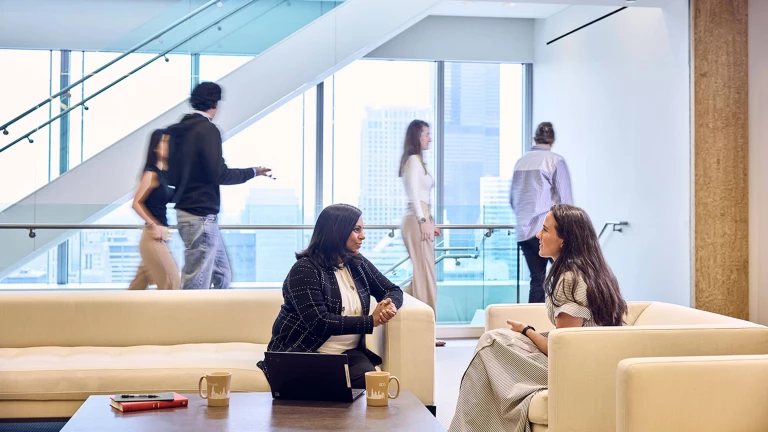
Another vital part of my journey has been Women@BCG. This isn’t just a formal program that I’ve enjoyed participating in; it’s where I’ve found friends, mentors, and people who understand the dual pressures of career and family. We’ve shared laughs, tears, and moments of strength, building a support system that makes it possible for us to bring our full selves to work. This culture of belonging is central to BCG’s mission, and I’m proud to contribute to it.
